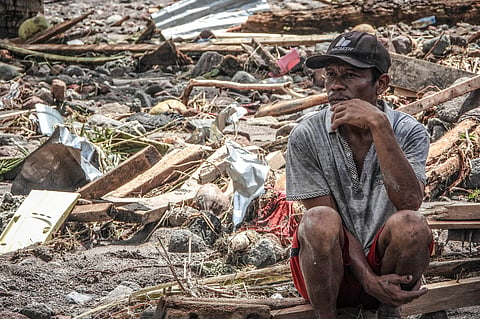
- NEWS
- the EDIT
- COMMENTARY
- BUSINESS
- LIFE
- SHOW
- ACTION
- GLOBAL GOALS
- SNAPS
- DYARYO TIRADA
- MORE

The United Nations is ready to help the Philippines with climate funding to lessen the effects of climate change in the country, Malacañang said on Sunday.
In a statement, Malacañang said UN Office for Disaster Risk Reduction Mami Mizutori expressed his support to President Ferdinand Marcos Jr. last Friday for taking decisive action on climate change by making policies and programs stronger, Malacañang said on Sunday.
"Because of your rather challenged situation, there is a very strong (need) and under your leadership, (the) policy and structure in your government … by building resilience at the national level but also at the local level down to the barangays and the communities," Mizutori said.
"I think the Philippines can share so much of the best practices that have come up from the challenges, and so we are here to accompany your Excellency and the government in the journey for resilience," Mizutori added.
Mizutori also said that the UN Secretary-General wants to change the international financial institutions and system.
She pointed out that middle-income countries like the Philippines are constantly being hit by disasters caused by climate change.
"So, we will work as a United Nations system on how better to access climate financing," Mizutori said.
In response, Marcos accepted the UN official's offer. Still, he pointed out that it was hard for developing countries to get money to deal with climate change.
"We are already in the middle of the effects of climate change. It's time to get it done. But I'm glad that you're here. As you can see immediately, this is very high on our priority," Marcos said.
"And then there are many, many other requirements that we have to fulfill. And sometimes it seems very difficult to qualify for some of these," Marcos added.
The President said that third-world countries like the Philippines have to deal with the many impacts of a changing climate, such as the "very rapid" rise in rice prices, since all Asian countries are expecting El Niño in the first quarter of next year.
"We are always expected to be one of the most vulnerable when it comes to the effects of climate change, and we certainly are very concerned," Marcos said.
He also said that places that don't normally get typhoons and other disasters are now more likely to experience floods and other changes and disruptions caused by climate change.
"As I've said, right now, we are already feeling it because of the frequency and the intensity of these disasters that fall into the country," Marcos said.
